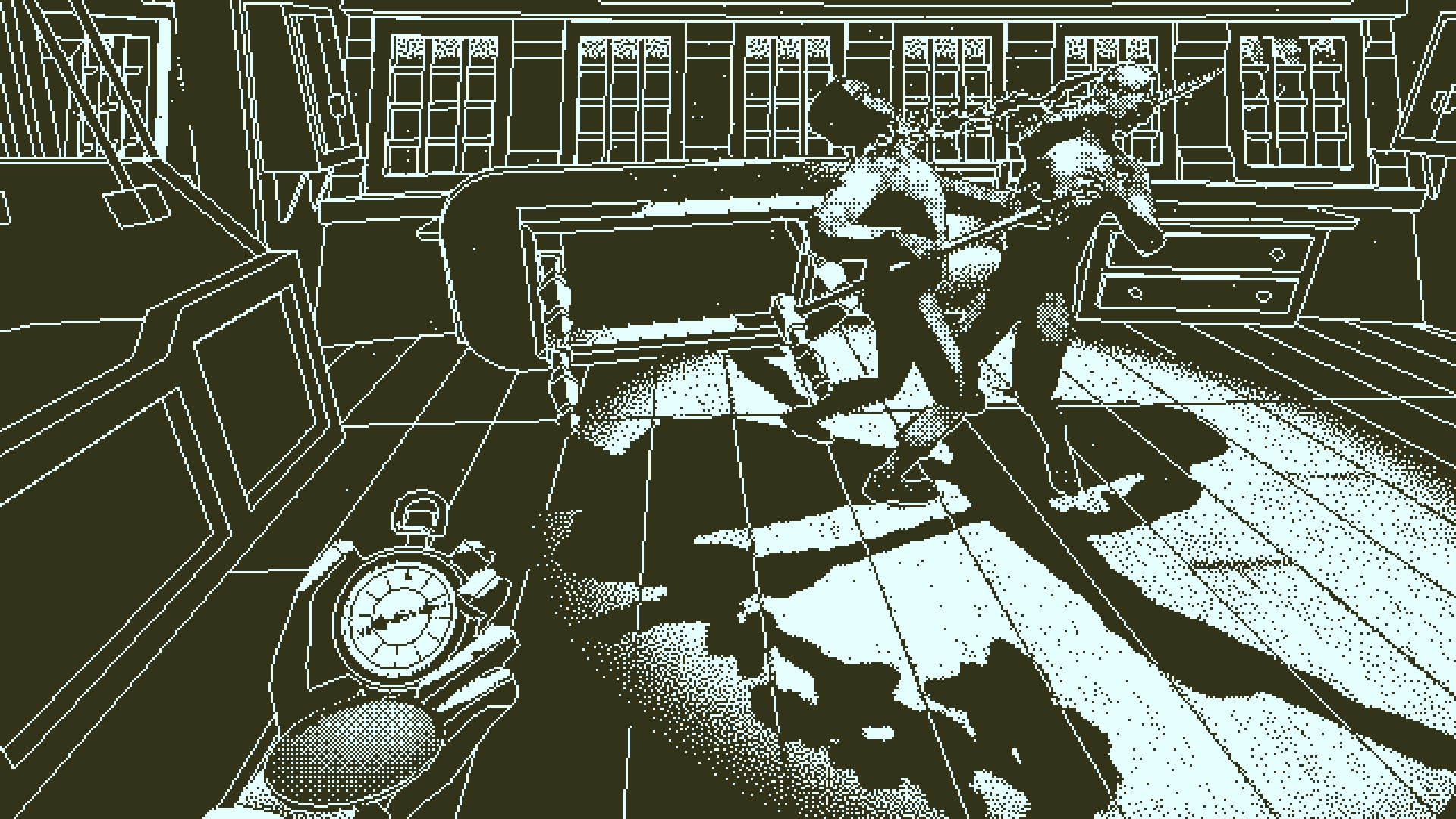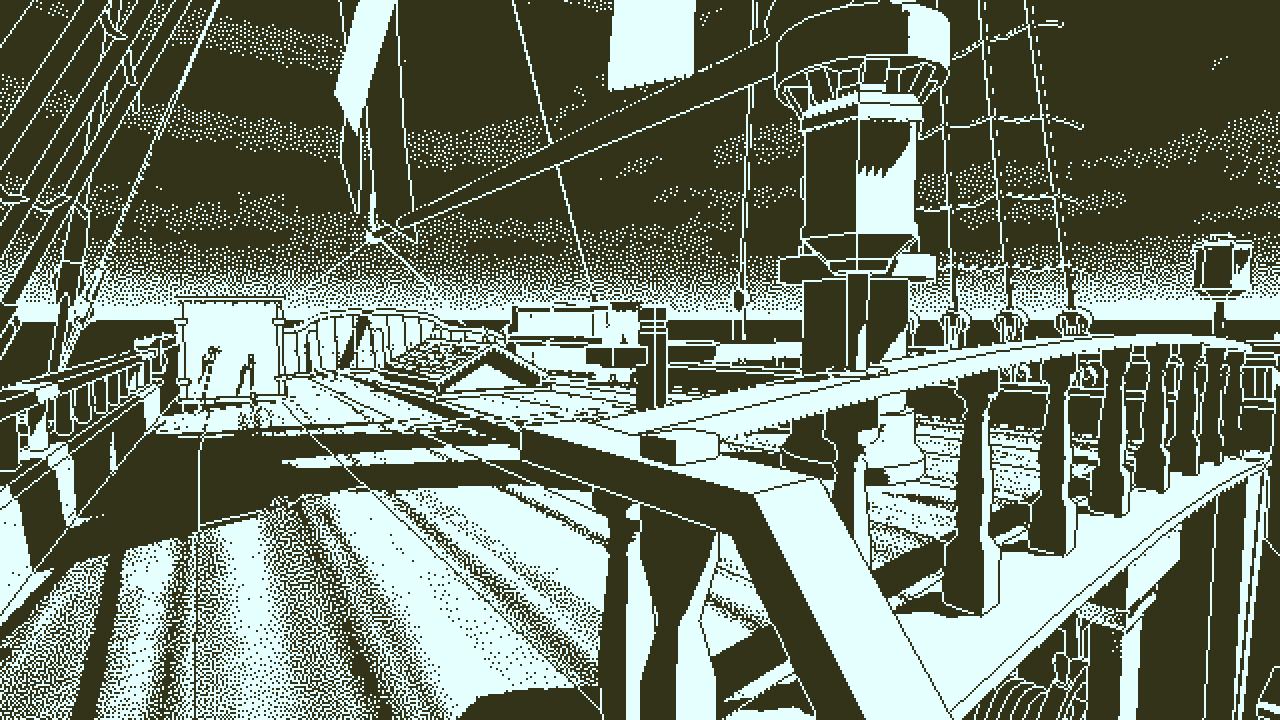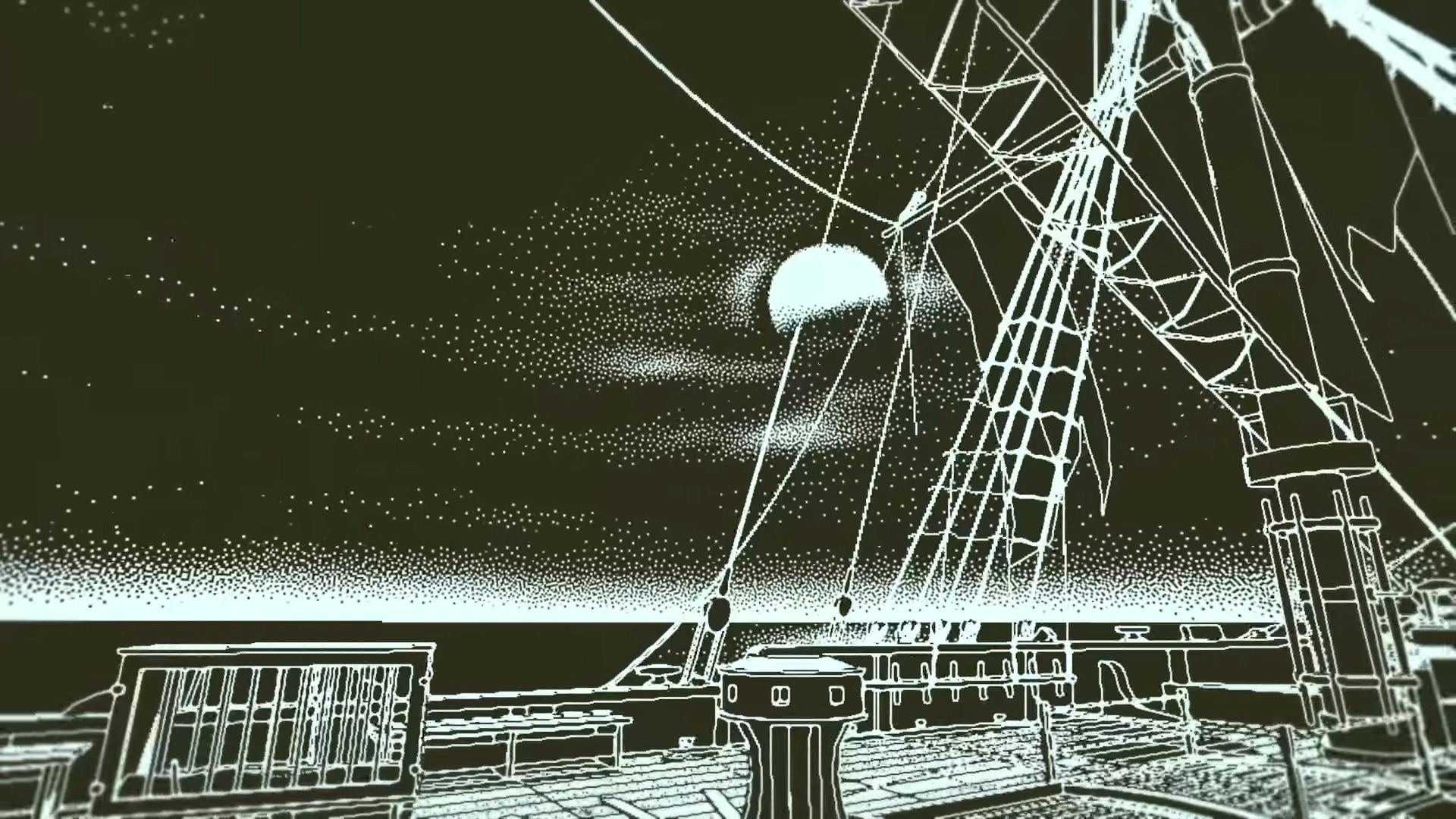After four years of waiting, Lucas Pope’s next game is finally here. Return of the Obra Dinn is a murder mystery from the mind behind Paper’s, Please, and like its renowned predecessor, this new game is just as reliant on observation and a sleek presentation. But Return of the Obra Dinn adds a wrinkle to the formula, and implements it in such a way as to grip you from the start, and tarnish the reputation of other games like it.
That addition is the simple act of deduction.
Elementary, My Dear Watson
Despite playing as an insurance adjuster for the historic East India Trading Company, Return of the Obra Dinn is a detective game. You won’t spend any of your time denying cancer patients health coverage because they coughed once a few years ago thus making them unqualified, instead you’ll be deducing how everyone on board the ship died. To do this, you’re given a mysterious pocket watch called the “Memento Mortem” that lets you travel back in time to the second a person died. You also have photographs of everyone on the ship, and a book to keep track the dead, how they died, and who or what killed them.
The game has a fantastic presentation with what Pope has dubbed a “1-bit” art style, and great music and voice acting that all immerse you in the world of 19th century sea-faring. But what makes Return of the Obra Dinn special is how it treats the player.
Most detective games have little faith in their audience. They make clues obvious, lead the player down by their nose, have actors over-act when they’re lying, or any number of other tricks to make the puzzles easy enough for a five year old to solve. That’s not the case with Obra Dinn.
The Game is Afoot!
Lucas Pope acts with tough love towards his audience. He likes making his audience observe his games, pay attention to the nitty gritty details, and he’s not afraid to punish you if you don’t. It’s the same case here, though with the added wrinkle of deduction.
Where Obra Dinn succeeds where most other detective games fail is that it doesn’t given you everything. The game is upfront with the fact that you’ll have to make deductions – logical leaps based on clues and information you find on your own – to fill in the entire picture.
For example, you may stumble across a body and have to figure out who is he. You know the body is located on the gun deck, that they’re wearing a naval uniform, and they are white. You may think that’s not much to go on, but it’s quite a lot. Looking at the crew log, you’ll find that there are only a handful of people assigned to the gun deck, only two that used to be in the navy, one is English and the other Indian. Well, if you look at the uniform, you’ll see the person was an officer, and given the racial prejudices of the early 1800’s, you can deduce that the person listed as an officer on the gun deck is the body before you.
Yes, that was a horrific example, and they’re never that easy, but that’s roughly how it goes. If this were another detective game, say the recently remastered LA Noire, the game probably would have highlighted the navy uniform, you could have interacted with it and protagonist Cole Phelps probably would have screamed “hey, this guy was an officer, it must be Captain Steve Deadman!”
Another Sherlock Reference
Return of the Obra Dinn can frustrate at times, but that’s the sign of a great detective game. Determining the cause and identity of 60 murders shouldn’t be easy, not matter how much help you get from a time traveling watch. This is the kind of game where you’ll to want to take notes, and you’ll even be spending your time away from the game concocting theories you’ll want to test, or thinking of which clues are red herrings.
The problem is this game makes all other detective games seem pathetic in comparison. As a fan of Frogware’s Sherlock series, Danganronpa, Phoenix Wright, and the entire genre, I can’t help but look at these other games and wonder why I enjoyed them so much. They all seem so easy, so “hand-holdy” in comparison to Obra Dinn. How can fans ever go back to those games after playing this one?





